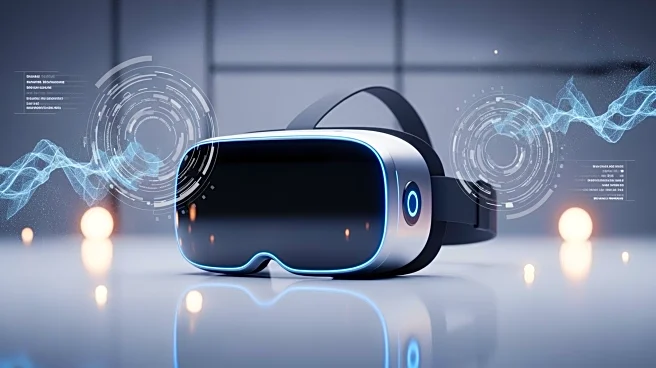What's Happening?
Meta's Chief Technology Officer, Andrew Bosworth, has declared 2025 as a pivotal year for augmented reality (AR) during a Bloomberg Tech interview. This statement comes in the wake of Meta's successful sale of 2 million Ray-Ban smart glasses since October
2023. The remark has intensified focus on AR hardware and software development, prompting competitors like Google and Apple to accelerate their smart-glass roadmaps for 2025-2026. Bosworth's comment has been interpreted as a public test of Meta's execution capabilities, setting a high-stakes timeline for Reality Labs, Meta's AR division.
Why It's Important?
The declaration by Meta's CTO has significant implications for the AR industry, as it compresses a multi-year strategy into a one-year accountability window. This could lead to faster product launches and increased marketing efforts as companies strive to meet the new expectations. The statement has also heightened investor scrutiny and could influence AR investment and product timelines. The industry is now watching to see if consumer adoption will match the accelerated hardware availability, which could impact the financial performance of companies involved in AR development.
What's Next?
As the industry responds to Meta's challenge, companies may push features earlier and take on higher risks to meet the new deadlines. This could result in sharper product deadlines, more aggressive marketing, and faster beta programs. The market will be closely monitoring release cadences, potential price drops, and real app adoption rates. If Reality Labs fails to meet its own test, the narrative could quickly shift, affecting consumer confidence and investment in AR technologies.
Beyond the Headlines
The statement by Bosworth not only sets a competitive tone but also raises questions about the maturity of AR software and its readiness for widespread consumer adoption. The pressure to deliver could lead to rushed product releases, potentially affecting quality and user experience. Additionally, the focus on hardware may overshadow the need for robust software ecosystems, which are crucial for long-term success in the AR market.
















